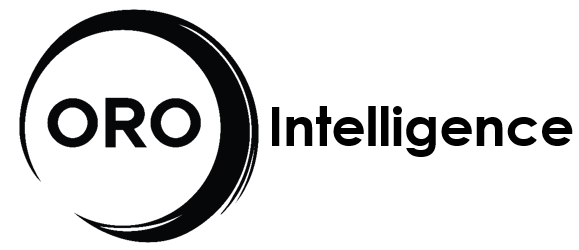ORO Intelligence: AI-Powered Scheduling to Reduce No-Shows
 ORO Intelligence is a participant in Cohort 4 of Transform, a data science and AI startup accelerator powered at the University of Chicago’s Polsky Center for Entrepreneurship and Innovation and Innovation in collaboration with the Data Science Institute.
ORO Intelligence is a participant in Cohort 4 of Transform, a data science and AI startup accelerator powered at the University of Chicago’s Polsky Center for Entrepreneurship and Innovation and Innovation in collaboration with the Data Science Institute.
ORO Intelligence is developing AI-powered software solutions for healthcare providers to improve patient access to timely care and increase revenue growth for hospitals and clinics.
Inefficiencies in healthcare scheduling, including no-shows and late cancellations, lead to significant costs for both patients and providers while contributing to long wait times for appointments.
Founded by brothers TJ and Tim Davison, ORO is looking to address this problem through AI-powered workflow automation, predictive modeling, and waitlist optimization.
TJ, the CEO, comes from a background in healthcare technology and electronic medical record (EMR) management beginning with his work at Epic as an implementation project manager, and most recently at Stanford Medicine as a revenue cycle product lead. Tim is a data scientist and AI researcher with the Johns Hopkins Applied Physics Lab, and he leads the technology side of the company as chief technology officer.
“EMR-native solutions designed to reduce no-shows typically operate with an incomplete data set when it comes to waitlist management. In some cases, EMR tools are able to react quickly when an appointment is cancelled on short notice, but they can’t go further by looking at trends in appointment adherence, scheduling behavior, and patient-specific data, typically because scheduling users lack the capacity and ability to collect and store complex data around a patient’s availability and scheduling preferences,” explained TJ Davison.
Uniquely able to effectively analyze large datasets, AI helps solve for this.
“By deploying an AI assistant to manage scheduling conversations on the front end, ORO’s digital assistant takes a comprehensive approach to collecting and analyzing thousands of data points and using them to effect change in scheduling workflows. It learns with every action to improve scheduling efficiency,” explained TJ Davison, noting that while other AI assistants exist, they do not specialize in solving the no-show problem.
Needed across a variety of clinical service lines and provider organizations, Davison said that there is “a significant amount of interest in a solution that can maximize provider utilization effectively, especially one which can easily integrate with major EMR systems.” In line with this, the startup last year was a finalist in the Edward L. Kaplan, ’71, New Venture Challenge, the signature venture competition for MBA students at the University of Chicago Booth School of Business.
Through this competition the founders met their now VP of finance and operations, Dina Gazayerli, a Booth graduate with deep expertise in the startup world. The team also includes Nick Taylor, a colleague of Tim’s from University of Virginia and ORO’s chief software architect, and most recently, Matthew Graf and Matthew Weltz who bring expertise in EMR integration and marketing/sales strategy, respectively.
“Our team’s knowledge of how various models can be designed to work together to address complex scheduling inefficiencies, combined with our experience working in healthcare EMR management, positions us perfectly to take advantage of this opportunity and come in on the ground floor of AI in healthcare,” said TJ Davison.
The team’s immediate plans involve connecting with an Epic organization to conduct a pilot study of its software. “From there, we’ll work with our partner organizations to further develop our analytics and our AI algorithms to the fullest extent possible, incorporating any features and data points valuable to the organizations,” added Davison.
Over the next few years the plan is to expand to larger health systems, work with additional EMRs, and further explore opportunities to leverage future AI technologies to supplement ORO’s product offering.
“We are excited about the mentorship opportunities and the ability to connect with partner organizations both affiliated with Transform and those who we will be able to connect with through Transform through the program’s networking resources,” said TJ Davison. “We’re also thrilled about the sessions we’ll be attending on strategy, fundraising, marketing, and more during the earlier phase of the program, as all of our experiences thus far with Polsky Center mentoring and education have been extremely valuable.”
// Read more about Cohort 4 startups: Asters | Dev Difference | Legion Space | PAC Dynamic | Slideflow Labs